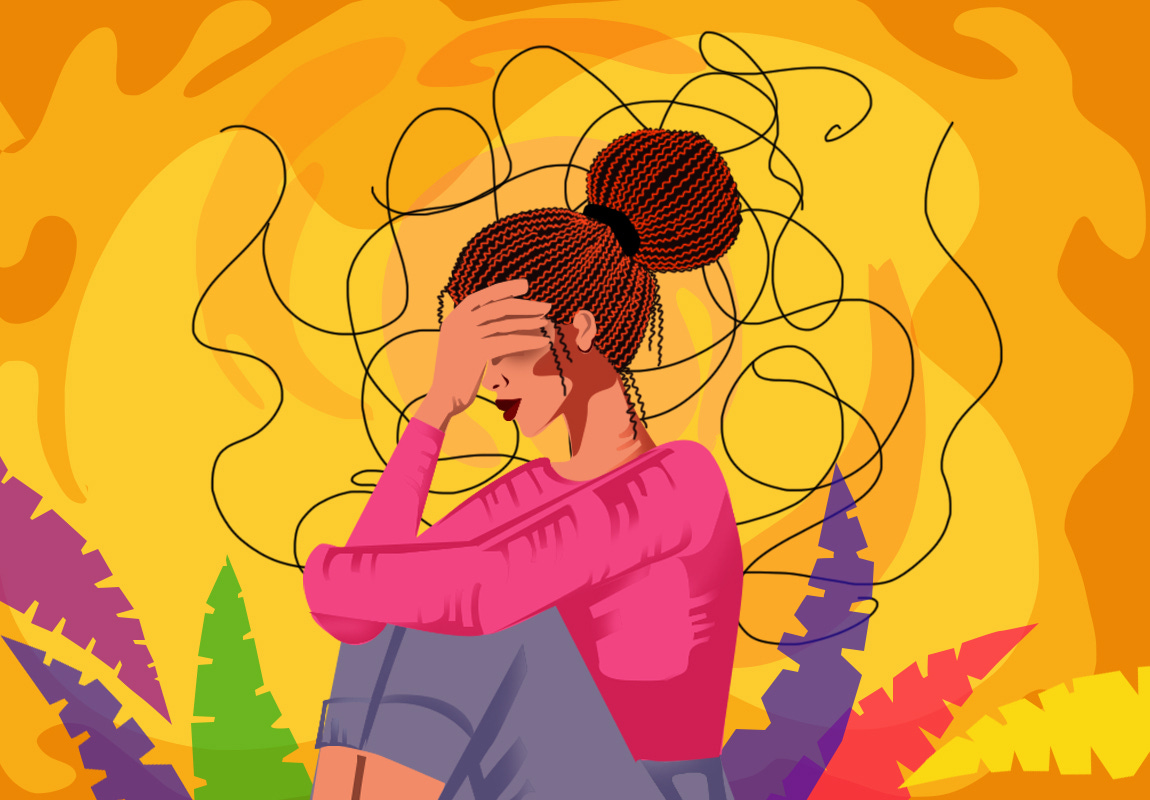It is normal to feel sad, low, irritable, and uninterested in activities. This can happen for no reason, or because of some unexpected hurtful events or illness. However, if these feelings start affecting our lives adversely, it is time to be concerned about it. Why? These can be an indication that you are suffering from depression.
What is depression?
Depression, or persistent sadness, can be defined as a mental illness characterised by a deep sense of sorrow and loss of interest in activities. This may last at least two weeks or more.
According to World Health Organisation (WHO), depression is one of the most common forms of disability. People of all age groups are prone to depression, and any life-turning events or health conditions can lead to depression in children, teenagers and adults. However, it is essential to know that sadness or being gloomy does not necessarily mean depression. It would help if you understood specific criteria before saying you are experiencing depression.
Depression can be caused by various illnesses and conditions, including cancer, diabetes, heart disease, and chronic pain. Depression can result in these problems getting worse, and vice versa. Medication for these conditions can have side effects that may worsen symptoms of depression.
How do you know if you have depression?
Only a licensed medical practitioner can diagnose depression. To suffer from depression, a person should exhibit depressive symptoms every day for at least two weeks. If you identify any of these symptoms mentioned below affecting your day-to-day life, you need to consult a clinical practitioner.
What are the signs and symptoms of depression?
The common symptoms and signs of depression are:
• Persistent sadness, anxiety, or numbness
• Hopelessness or pessimism
• Irritable, feeling guilty, and frustrated
• Loss of interest, and fatigue
• Lack of concentration, memory, and sleep or excessive sleeping
• Suicide attempts or thoughts of death or suicide
What are the various kinds of depression?
There are different kinds of depression such as major depression, dysthymia, perinatal depression, postpartum depression, seasonal affective depression, and depression with psychotic symptoms.
Major depression can be defined as depressive symptoms lasting for at least two weeks and affecting day-to-day activities. Dysthymia, also called a persistent depressive disorder, is characterised by less severe depression symptoms but lasts a little longer than usual – for at least two years.
Depression symptoms vary with gender, age, and socio-economic background.
Depression in Women
Symptoms of depression in females include:
• Irritability
• Anxiety
• Fluctuations in mood
• Fatigue
• Overthinking
However, the depression that is common among females are
• Postpartum depression
• Premenstrual dysphoric disorder (PMDD)
Depression in men
Studies conducted by HealthThink show that 4.9% of men on an average in Africa experience depression or anxiety. Compared to females, males with depression tend to indulge themselves in unhealthy behaviours such as excessive drinking and other kinds of substance-use. They also tend to avoid social activities and may get involved in work without breaks. Men suffering from depression may also find it challenging to balance work and family.
People of any age group can be affected by depression. Signs and symptoms of depression in adolescents and children include
• Having trouble focusing on homework
• Insomnia
• Sleeping excessively
• A decrease or increase in appetite
• Avoiding previously pleasurable social encounters and activities
• A sense of remorse, helplessness, or worthlessness
• An inability to sit motionless, which is a sign of restlessness.
• Low-energy wailing
• Clinginess
• Vocal outbursts, defiant behaviour
Causes of depression
There are different causes of depression. Neurotransmitter levels in the brain, medical diseases such as a thyroid problem or a vitamin deficiency, or hereditary, environmental and psychosocial factors can all contribute to depression.
How is depression treated?
Depression can be treated and almost 90% of people affected with depression react effectively to treatment. Treatment includes medication and psychotherapy, including talk therapy, Cognitive Behavioural Therapy (CBT), Rational Emotive Behaviour Therapy (REBT), dialectical behaviour therapy, and many more depending on the symptoms and the practitioner.
Natural remedies and lifestyle tips
Since we are all prone to depression at one point or the other, taking care of ourselves physically and mentally can help prevent the onset of depression or can help us manage the symptoms better. Healthy daily routines can help us stave off depression.
To prevent the tendency for depression, you can try the following:
Exercise: Exercising regularly and exposing to sunlight will help boost your body’s production of endorphins, which are feel-good hormones. This will prevent symptoms.
Avoid alcohol and substance use: Alcohol and other substances can exacerbate symptoms of depression and anxiety, so keep them away.
Set healthy boundaries: The ability to say ‘No’ and ‘Yes’ is essential to improving your mood and peace of mind. Symptoms of anxiety and depression can get worse when we feel overloaded. By setting healthy boundaries at work and in personal life, you can reduce symptoms of depression and improve your mood.
In addition to these, it is essential to sleep well, eat nutritious food and engage in pleasurable hobbies. So, if you have been feeling down for more than two weeks, have lost interest in activities you used to enjoy, are irritable, or feel lost, seek medical help!
Now put on your thinking hats and think about the following questions for a couple of minutes.
As a teacher, how would you describe the word “depression” to your students?
Can you think of some factors that may contribute to depression in children?
Can you think of some effective ways to reduce stress in children?
Write down your thoughts and discuss them with your students, children and your colleagues. Listen to their views and compare them with your own. As you listen to others, note how similar or different your views are to others’.
Thank you for listening. Subscribe to The Scando Review on thescandoreview.com.
Happy Teaching!













Depression